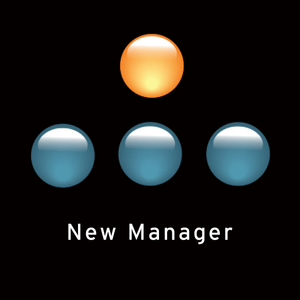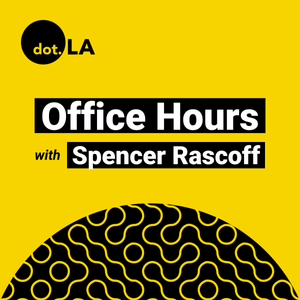
#106: Hannes Leroy - Curiosity, challenges and authenticity
12/05/21 • 36 min
Tom Peters said that Management is about arranging and telling. Leadership is about nurturing and enhancing. What do you think?
Bio
Hannes Leroy is Associate Professor at Erasmus University and Distinguished Research Professor at Exeter Business School. As Academic Director of the Erasmus Center of Leadership, Hannes helps to oversee the quality of leadership development at different levels in Erasmus University (undergraduate, graduate, post-graduate, and executive education). Furthermore, as steward of the League of Leadership initiative he helps to oversee an international consortium of top business schools across the world with the mission of collectively enhancing quality standards of leadership development. Aligned with these efforts, Hannes has published numerous studies on leadership and its development in top journals, has taught a wide variety of leadership classes and is principal coordinator of various leadership development curricula.
Summary
We start by talking about how you need to be curious about people in order to motivate them. This leads us on to talking to your boss, and the importance of each party being able to admit mistakes. Next, we discuss being challenged as a leader, and what challenges leaders are facing. We close by asking if alignment is the ultimate form of authenticity.
Reflection
Hannes said that your non-verbal signals have to correspond to what you’re saying. I wonder how much people can trust somebody if their main point of contact is emails and the occasional zoom call. How many non-verbal signals can somebody’s brain pick up on, if they’re not around the person enough? That’s something I didn’t really think about in office working, the greater chance of creating that relationship just with your small day-to-day actions. I remember Cynthia Bryant talking about the importance of closing your eyes and trying to figure out what you can tell beyond that. Maybe I should now do the opposite, keep my eyes open but try not to listen, putting my fingers in my ears or something. How much information can I impart just beyond the words I’m saying?
More about Hannes
https://www.ted.com/talks/hannes_leroy_i_was_never_trained_for_this
https://www.rsm.nl/people/hannes-leroy/
www.rsm.nl/leadership/
https://link.springer.com/article/10.1007/s10551-011-1036-1
Tom Peters said that Management is about arranging and telling. Leadership is about nurturing and enhancing. What do you think?
Bio
Hannes Leroy is Associate Professor at Erasmus University and Distinguished Research Professor at Exeter Business School. As Academic Director of the Erasmus Center of Leadership, Hannes helps to oversee the quality of leadership development at different levels in Erasmus University (undergraduate, graduate, post-graduate, and executive education). Furthermore, as steward of the League of Leadership initiative he helps to oversee an international consortium of top business schools across the world with the mission of collectively enhancing quality standards of leadership development. Aligned with these efforts, Hannes has published numerous studies on leadership and its development in top journals, has taught a wide variety of leadership classes and is principal coordinator of various leadership development curricula.
Summary
We start by talking about how you need to be curious about people in order to motivate them. This leads us on to talking to your boss, and the importance of each party being able to admit mistakes. Next, we discuss being challenged as a leader, and what challenges leaders are facing. We close by asking if alignment is the ultimate form of authenticity.
Reflection
Hannes said that your non-verbal signals have to correspond to what you’re saying. I wonder how much people can trust somebody if their main point of contact is emails and the occasional zoom call. How many non-verbal signals can somebody’s brain pick up on, if they’re not around the person enough? That’s something I didn’t really think about in office working, the greater chance of creating that relationship just with your small day-to-day actions. I remember Cynthia Bryant talking about the importance of closing your eyes and trying to figure out what you can tell beyond that. Maybe I should now do the opposite, keep my eyes open but try not to listen, putting my fingers in my ears or something. How much information can I impart just beyond the words I’m saying?
More about Hannes
https://www.ted.com/talks/hannes_leroy_i_was_never_trained_for_this
https://www.rsm.nl/people/hannes-leroy/
www.rsm.nl/leadership/
https://link.springer.com/article/10.1007/s10551-011-1036-1
Previous Episode

#105 Jennifer Ingram Johnson: Racism, Leadership, Relationships and the Mississippi Bar.
‘We all have common ground, we are all human at the very core, we all experience the same emotions, just about different things and in different ways.’
Bio
Jennifer Johnson is not only an award-winning businesswoman and lawyer, but she is the immediate past president of the Mississippi bar association. The Mississippi bar is a compulsory bar. Every lawyer in Mississippi has to pay into it, but historically not every lawyer has been represented. Jennifer has set the first steps into making an integrated future a reality. I am proud to talk to this 21st-century lawyer, advocate, award winner and awesome mother on the podcast today.
Synopsis
She starts by talking about how she was elected and the state of the bar. We talk about how some people don’t see a racial issue in that state and the idea of racism being “over”. The need to temper honesty with compassion, and the strength gained with diversity. We end by talking about the personal truths of each person, how people can end up being defined by a social category they are assigned to, and how important it is that we don’t see those so vividly, and connect with each other.
References
Books / Articles
Radical Candour
Thanks for the Feedback
Organisations
The Mississippi Bar Association
Harvard Law School
University of Southern Mississippi
Oscher Lifelong Learning Institute
ABOTA, the American Board of Trial Advocates
The Magnolia Bar Association
People
George Floyd
Robert Gibbs
Sacha Baron-Cohen
Sir Simon Philip Baron-Cohen
Douglas Stone
Sheila Heen
Chris Voss
Next Episode

#107: John Molidor - Communication, neuroscience, and labels
Do you think, like Rasmus Hougaard, that to lead other people effectively, we need to avoid “mental rigidness”?
Bio
Today we have our first professor on the podcast, John B Molidor. He's President of Michigan State University Flint Area Medical Education. He focuses on helping people understand how their brain, communication and interviewing can work together.
Synopsis
We begin at the very beginning, by talking about how babies connect with people. This leads us to discuss facial expressions and the limits of video calling. We speak a lot about how brains are wired, and what we can do to change that later in life. He tells us about how labels can affect us and how we can avoid them. One of the parts of neuroscience I found really fascinating was talking about the connection between the body and the brain. We finish by talking about intentionality, and how important deliberate actions can be to us.
Reflection
I think what I found interesting about this discussion with John was that cut off around about 25 years of age. I finally came out when I was 26, I think it's because I realized at that time that who I was was not going to change. I was just wondering how much are we actually influencing people around us that they have to carry that with them the rest of their lives. I mean, when we're going into work in our early twenties, how much of that relationship burden we get saddled with are we going to be stranded with when we're over the age of 27, and how are we gonna deal with it now with a pandemic being rampant and we're not really getting that personal interaction. Are we gonna be restructuring brains forever? And could we use neuroplasticity, even if we have to push it to the limits, to reconnect as people?
Well, I know from personal experience that after my PTSD in the military it took me a while to get back, to connect with people. And I now know that it's possible, but it takes a lot of work. So, can we all commit to helping people under the age of 25 to find relationships that are worthwhile, authentic, and helps them to understand the connection between humans and how that is really, really important to be able to do our work properly? Well, I'm there, and I will, and I hope you are too.
More from John
https://www.linkedin.com/in/john-b-molidor-ph-d-2916218
https://www.amazon.com/gp/product/B007OWRBLI/ref=dbs_a_def_rwt_hsch_vapi_tkin_p1_i0
Exponential Leadership - #106: Hannes Leroy - Curiosity, challenges and authenticity
Transcript
Tom Peters said that Management is about arranging and telling. Leadership is about nurturing and enhancing. What do you think?
Summary
We start by talking about how you need to be curious about people in order to motivate them. This leads us on to talking to your boss, and the importance of each party being able to admit mistakes. Next, we discuss being challenged as a leader, and what challenges leaders are facing. We close by asking if alignment is the ultimate form of authenticity.
If you like this episode you’ll love
Episode Comments
Generate a badge
Get a badge for your website that links back to this episode
<a href="https://goodpods.com/podcasts/exponential-leadership-230581/106-hannes-leroy-curiosity-challenges-and-authenticity-26002568"> <img src="https://storage.googleapis.com/goodpods-images-bucket/badges/generic-badge-1.svg" alt="listen to #106: hannes leroy - curiosity, challenges and authenticity on goodpods" style="width: 225px" /> </a>
Copy




